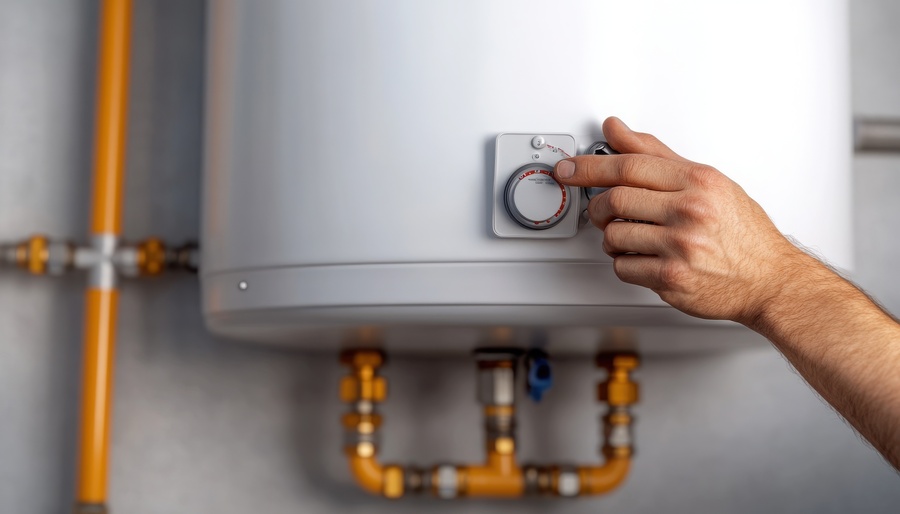A properly functioning boiler system is central to home comfort, especially during colder months. Yet many of us don’t think about our boilers until something goes wrong. Understanding the basics of boiler repairs and installations can help us avoid unexpected breakdowns and make smarter decisions when it’s time for an upgrade. At Atlantic Plumbing, Heating & Air Conditioning Inc., we’ve helped countless homeowners navigate everything from urgent repairs to full system installations—and we’re here to help you do the same.
Understanding Different Boiler Types
Before diving into repairs and installations, it’s crucial to understand the various types of boilers available. Each type has its unique advantages and disadvantages, and knowing them can help you choose the best system for your home.
Combi Boilers
These are compact, energy-efficient, and provide both heating and hot water on demand—ideal for smaller households. If space-saving is a priority, combi boilers are often our go-to recommendation during boiler repairs and installations.
System Boilers
System boilers require a cylinder for storing hot water but do not need a water tank in the loft. They are suitable for homes with multiple bathrooms because they can deliver hot water to several taps simultaneously. System boilers are a great choice for larger households where hot water demand is higher.
Conventional Boilers
These traditional setups use both a tank and a cylinder and work well in older homes or areas with low water pressure. We still see many homes using these, and when we handle boiler repairs and installations for conventional units, we focus on optimizing their longevity and efficiency.
Common Boiler Issues and Their Solutions
Like any other home system, boilers can encounter problems. Understanding some common issues and their solutions can help you address minor problems before they escalate into major repairs.
No Heat or Hot Water
If your boiler is not providing heat or hot water, it could be due to various reasons such as a broken diaphragm, a failed thermostat, or low water levels. Checking the thermostat settings and topping up the water pressure could resolve this issue. However, if the problem persists, it might require professional intervention.
Leaking and Dripping
Leaks can be caused by a variety of issues, including corrosion, a broken pressure valve, or a worn-out pump seal. It’s important to address leaks promptly as they can lead to more significant problems, such as water damage or system failure.
Strange Noises
Gurgling, banging, or whistling noises often indicate air in the system, low water pressure, or even a more severe issue like kettling, where limescale buildup causes the water to overheat and boil. Regular maintenance can help prevent these issues from developing.
Boiler Installation Timelines and Considerations
Understanding the timeline and factors involved in boiler installations can help you plan better and reduce any inconvenience associated with the installation process.
Pre-Installation Assessment
Before installing a new boiler, a qualified technician should conduct a thorough assessment of your home. This includes evaluating the size of your home, the number of bathrooms, and your hot water usage patterns. This step ensures you choose a system that meets your specific needs.
Installation Process
Depending on whether we’re replacing a similar model or switching to a different boiler type, the time and complexity can vary. During any boiler repairs installations, we aim to minimize downtime so your home stays warm and functional.
Post-Installation Checks
After installation, it’s important to conduct a series of checks to ensure everything is working correctly. This includes testing the system, checking the water pressure, and ensuring there are no leaks. A professional installer will also walk you through the operation of your new system.
Maintaining Your Boiler for Longevity
Regular maintenance is key to ensuring your boiler operates efficiently and lasts as long as possible. Here are some maintenance tips to keep your boiler in top condition:
- Annual Servicing: Have your boiler serviced annually by a qualified technician to catch any potential issues early.
- Check Pressure Levels: Regularly check the pressure gauge on your boiler to ensure it’s within the recommended range.
- Bleed Radiators: Bleed your radiators to remove any trapped air, which can improve efficiency and heat distribution.
- Insulate Pipes: Insulate your pipes to prevent them from freezing during the colder months.
When to Consider Replacing Your Boiler
While regular maintenance can extend the life of your boiler, there will come a time when replacement is the most cost-effective option. Here are some signs that it might be time to consider a new boiler:
- Frequent Breakdowns: If your boiler is constantly breaking down, the cost of repairs might outweigh the benefits of keeping it.
- Rising Energy Bills: An old or inefficient boiler can cause your energy bills to rise. Replacing it with a more efficient model can save you money in the long run.
- Age of the Boiler: Most boilers last between 10-15 years. If yours is within this age range, it might be time to consider a replacement.
Boiler repairs and installations don’t have to be overwhelming. With the right knowledge—and the right team on your side—you can make smart, informed decisions that improve your home’s comfort and efficiency. At Atlantic Plumbing, Heating & Air Conditioning Inc., we bring decades of experience to every job, whether you need quick boiler repairs, a full replacement, or regular maintenance.
Reach out to us today if you’re noticing issues with your heating system or want to explore new installation options. We’re always ready to help you stay warm and worry-free.
